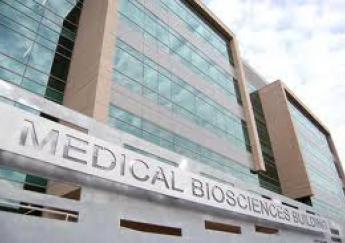Investment in 'knowledge economy' beginning to pay dividends?

With the opening of UCD’s brand new science centre next month, it’s fair to say that real progress has been made in the decade long pursuit of a ‘knowledge economy’ in Ireland, writes John Holden.
Terms like ‘Ireland Inc’ and the ‘knowledge economy’ understandably get on some people’s nerves. They have become clichés of the highest order as well as reminders of the Fianna Fáil-led governments that brought us to our economic knees.
But there may be some cause for optimism. Successive governments’ policy and investment focus on science, technology and engineering – or that ‘knowledge economy’ - is starting to show results. Ireland was recently ranked third in the world for research in the area of immunology. Earlier this year the Alimentary Pharmabiotic Centre (APC) in UCC was listed second in the world by Thompson Reuters Science Watch Global Agency in the area of probiotics research (institutions are ranked by citations, papers, and citations per paper). UCC and NUI Galway marine biologists have just led an expedition into previously uncharted depths in the Atlantic Ocean, along with a National Geographic film crew. In fact leading Irish scientists and academics are now regularly publishing in top class international journals. Someone somewhere is doing something right.
On 9 September, President Mary McAleese, will officially open the brand new UCD Centre for Molecular Innovation and Drug Discovery, which is part of a €300 million capital investment in the sciences at UCD. This is the biggest capital investment of its kind ever undertaken in this country and will house world-class facilities.
Earlier in the summer, the €131m state-of-the-art Trinity Biomedical Sciences Institute was opened by Taoiseach Enda Kenny. Upon its opening, the new research facility was described by one commentator as “redefining the scientific landscape in Ireland and allowing the country to take an international lead.”
Even with the specific research remits in both new buildings, the spaces have been designed specifically to encourage one of the great developments in modern education – the multidisciplinary approach. Both buildings have open spaces and easy access between departments, which allows for increased collaboration. This may seem trivial but in reality, a good working environment is crucial to increasing productivity. And, by its very nature, scientific research has a habit of making breakthroughs in one area that can often lead to outcomes in another.
In order for so much investment to be put into the previously ‘unsexy’ scientific disciplines, however, a certain compromise from the purists had to be made. Never before have academia and industry been so closely linked. For instance, the UCD-led Food for Health Ireland programme is a 25 million euro investment collaboration paid for by the four major dairy producers in Ireland (Kerry Group, Glanbia, Carbery and Dairygold) and Enterprise Ireland and involves researchers in UCC, University of Limerick, UCD and Teagasc. Science research of this kind really needs to have a commercial focus in order to secure funding.
In other disciplines, such as the Arts, this would probably be a concern. And while commercial imperatives will always affect the direction our education system may take, there is no reason to believe that research into an area like the life sciences, for example, would be all that different without any industry input. Some areas, such as astrophysics, do not get nearly as much attention as others on account of their research having little or no commercial value.
But there are winners and losers in everything. Overall, the ‘knowledge economy’ is an area where Ireland at large is winning. Maybe now its time to invent a new label. Where’s David McWilliams when you need him? Probably in an apple orchard somewhere.
